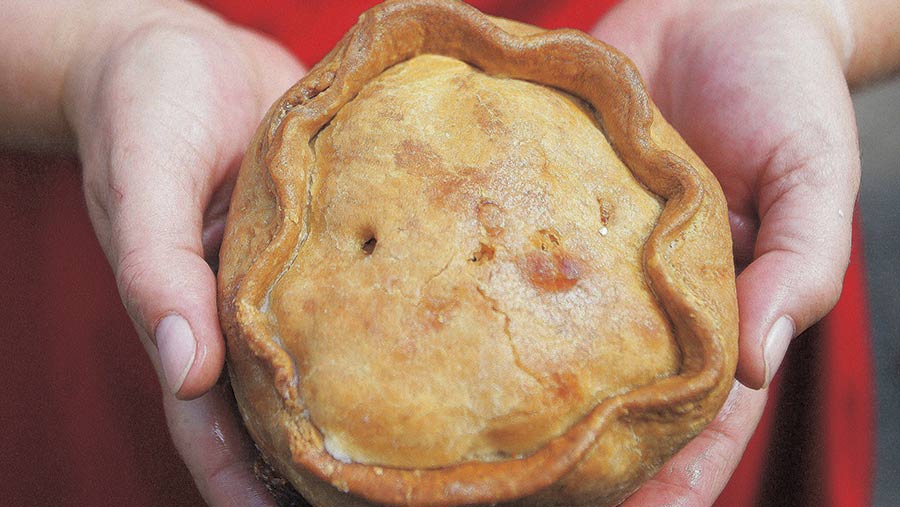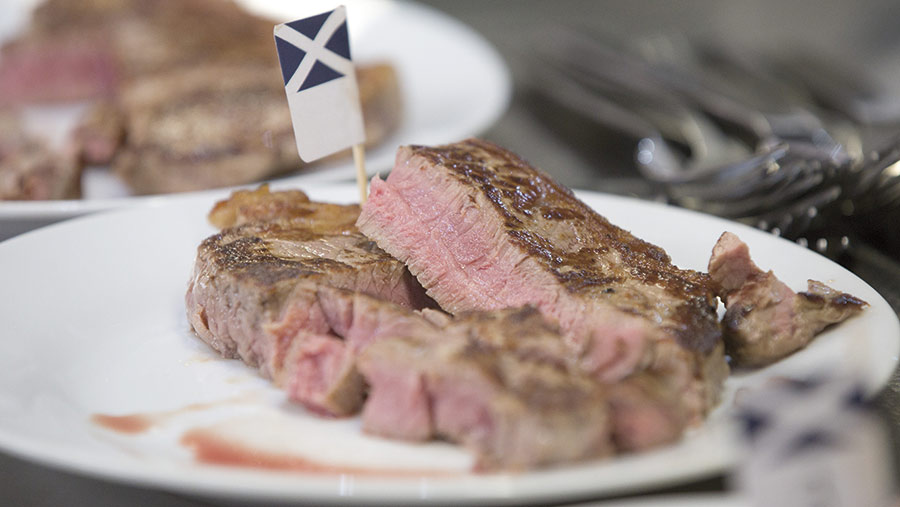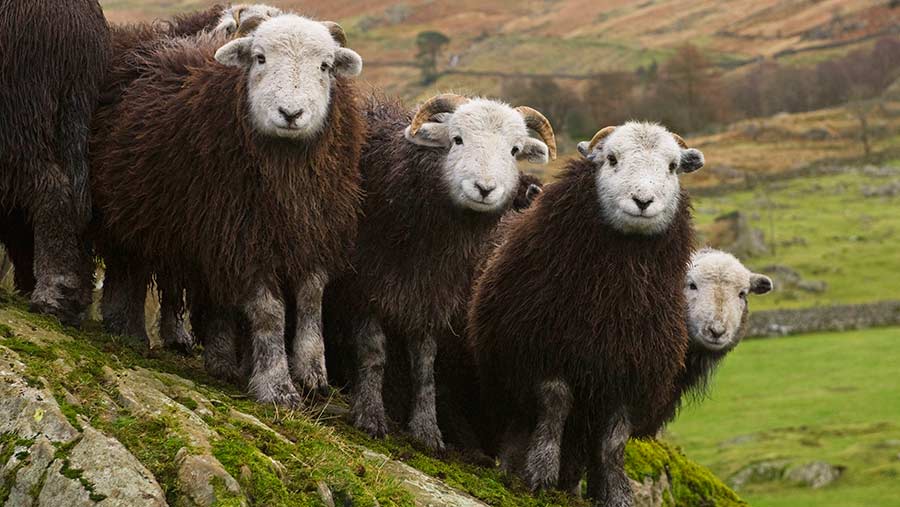Protected UK food names: What happens post-Brexit?

A debate has started about how best to protect some of Britain’s most cherished food brands from cheap imitations once the UK leaves the EU.
Iconic products such as Melton Mowbray pork pies, Welsh lamb and Scotch beef have gained the EU’s Protected Geographical Indication (PGI) status, Protected Designation of Origin (PDO) or are included in Traditional Specialty Guaranteed (TSG) schemes.
Industry representatives recently met farm minister George Eustice to discuss what should happen to these products after Brexit.
See also: Farmers may benefit as China eyes EU speciality foods
There are 61 UK foods with protected status, with another 17 applications in the system.
While these numbers are lower than countries such as Italy, France, Spain and Germany, those who have fought to secure protected status argue it is an important marketing tool that needs to be retained.
Protected names help exports
“The PGI status enjoyed by Welsh lamb and Welsh beef places our products in the same category as premium goods such as Champagne,” says Hybu Cig Cymru (Meat Promotion Wales) chief executive Gwyn Howells.
“As well as protecting our meat against imitation and giving customers confidence in its authenticity and traceability, the PGI status has been a cornerstone of marketing efforts that have seen lamb exports rise from £57m in 2004 to £133m in the space of a decade.”
So what might happen in the future?
The worry is that without some form of protection, cheaper, poor-quality imitations will hit the market, which will undermine the reputation and value of authentic regional products.
Shortly after the EU referendum vote former Defra secretary Liz Truss tried to allay these fears, telling MPs that she was keen to develop “British protected food name status”.
Six months on Defra says it is business as usual, given the UK is still a member of the EU. But a spokesman adds: “These products are extremely important to our reputation as a great food nation and we will work to ensure they continue to benefit from protection in the future.”
Matthew O’Callaghan, chairman of the UK Protected Food Names Association (PFNA), likens protected name status to having a Michelin star in the restaurant world.

The meeting with Mr Eustice was positive and the industry is putting together a working group so it can work with Defra on proposals for a new scheme, Mr O’Callaghan says.
But he warns a suggestion that trademark certifications might be an alternative to a national scheme was not one that would work for everyone.
“If someone wanted to get protected status in the EU then they would have to apply for trademarks in 27 different countries, which would come at a cost. Unlike Protected Food Names (PFN) status, it would also not be linked to a particular place.”
Mr O’Callaghan says the industry’s preference is for a scheme very similar to the EU one, but with improvements.
Stronger enforcement needed
“One change is we really do need proper enforcement of the rules,” he says.
“There isn’t currently a specific law on protected food names, so trading standards have to use existing consumer laws, such as ‘passing off’, to take action. That’s not really adequate.”
Protected status
- In total, there are 1,377 foods with protected status across the EU.
- Research carried out in 2013 found that the EU’s protected food products typically wholesale for 1.55 times more money than non-protected foods. At 1.07, the premium is smaller in the UK but there are further benefits for producers, such as greater stability, profitability and an enhanced reputation for their businesses.
- Protected status products can also promote more stable supply chains.
To improve transparency for consumers, the PFNA would also like to see a registration scheme for producers of a protected food, he says.
There is a list of the products covered, but not who is behind them.
There’s also a desire to see a cut in the bureaucracy involved as it can take years for an application to be accepted.
An AHDB Horizon report published in December concluded that provided there was a reciprocal agreement between the UK and the EU. then existing registered protected names should be able to benefit from EU protection.
It also highlighted that non-EU countries such as Colombia (coffee) and Mexico (tequila) already have food products registered for protection in the EU – so a precedent is there for the UK.
National approval scheme for UK?
However, non-EU products must already be protected in their country of origin, which means the UK would need to set up its own national approval scheme to deal with new applications.
Kathy Roussel, head of the AHDB’s Brussels office and co-author of the Horizon report, says: “Only when products have been approved by a non-EU country’s own national scheme can they be considered for approval under the EU protected food scheme.”
Ms Roussel also stresses while protected status added value for some products and could result in premiums, it did not on its own guarantee success.
AHDB has found to increase returns, producers have to work individually or collectivity to develop their market. There can also be increased costs associated with PFN compliance.
Herdwick challenges
Amanda Carson, secretary of the Herdwick Sheep Breeders Association, who was involved in a seven-year battle to get PDO status for Lakeland Herdwicks, admits they had found the rules requiring lambs to be “born, bred and butchered’ in Cumbria a difficulty.

Only one abattoir had been prepared to get involved in the scheme, which meant many farmers were unable to meet all the PDO requirements.
This meant they had to develop an alternative approach to help these producers market Herdwick lamb. “It is not as easy as it seems,” she says.
“It is not as easy as it seems,” she says.
However, PDO status had helped to secure exports to Hong Kong and there were a small number of farmers securing premiums because they were “selling food with a story” to top chefs in the region, she adds.
